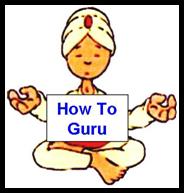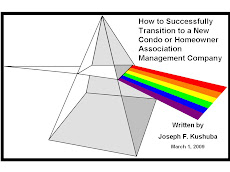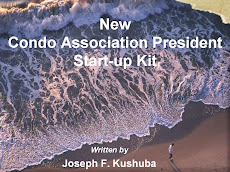 With the advent of condo and homeowner associations, a form of government has emerged that has resulted in many of its leaders being ill-equipped to handle the duties and responsibilities for the positions they hold. It is not surprising that association members are up in arms with Board of Directors (BoD) who are not meeting their expectations (I am being very kind here)! More discouraging is that many Board members do not recognize their shortfall or even if they do, they choose to do nothing about it.
With the advent of condo and homeowner associations, a form of government has emerged that has resulted in many of its leaders being ill-equipped to handle the duties and responsibilities for the positions they hold. It is not surprising that association members are up in arms with Board of Directors (BoD) who are not meeting their expectations (I am being very kind here)! More discouraging is that many Board members do not recognize their shortfall or even if they do, they choose to do nothing about it.Now, I do not want to unduly criticize those extremely dedicated members who are working their fingers to the bone at a thankless job that they get to do for free. But, there is a difference between working hard to do the right things versus doing the right things so you don’t have to work hard. It is called working smarter versus working harder! If you don’t know what is broken, then you will not know how to fix it. If you don’t that there is a better way, then you will never improve. It is time for Board members to look at themselves in the mirror and honestly assess the job they have been doing.
I believe that most problems with condo and homeowner association Boards are rooted in a three areas including; the nature of a volunteer not-for profit Board, motivation for becoming a Board member, and most importantly their qualifications and skill sets.
Many association board members are not professionals. They may not have formal education or practical experiences to properly lead and manage a company – and their association is a company. Typically, for-profit Board members who are paid, have to compete on the open market with other candidates to get the job. That usually provides for a stronger pool of qualified candidates. Board members for these companies are usually the most senior and qualified that are available. You would never select a board member because s/he was the only one available who wanted the job or use it as an entry level position. These are positions where you do not want to do “on-the-job-training.”
With condo and homeowner associations, the candidate pool can be weak and lacking. Reasons for running for a BoD position may range from, “No one else will volunteer to do it.”, to “I want to protect my personal interests.”, to “I want to help and give back.” Unfortunately, this is not what is necessarily needed to run a company.
The problems faced by associations are not unique to them. The same problems exist in all companies. Some leaders handle these issues well and some don’t. It is only reasonable to expect that an association with inexperienced leaders will face a very rocky road. This is a formula for a company destined to “trial and error” approaches and one that spends all of its time on fixing problems, rather than from preventing them from occurring in the first place. The use of a Management Company is no guarantee of success either, as many of them and under-qualified and under-experienced in leading a company. They can be good at routine back-office jobs (accounting, web sites, maintenance requests, etc.) and enforcers (CCR compliance, fee collection, etc.), but they are not company BoD leaders.
In many cases, condo and homeowner associations have been created by developers for purposes of maximizing their profits. Typically they are the initial BoD and they too are likely not experts in the field of leadership/management or in setting up an effective management systems. But in their case, they can easily walk away once the project has been completed. So, now you have a situation where a new volunteer Board is thrust into running a new company. They enter a system where no qualifications or experiences are necessarily required. Many will not know what to do, why to do it, or when to do it. It is not surprising that they will have problems with their “investors” – namely, the owners.
The options for an inexperienced Board are few. They could hire a qualified Management Company to assist them. They could try to recruit more qualified volunteer Board members. But, probably, one of the most important things they can do is to arm themselves with knowledge. It may not be pretty, but a Board may have to quickly climb the learning acceleration curve by making mistakes and learning from them. Continual development of one’s skills is essential to stay on top of the every changing demands of an association.
Successful associations do not just happen – and they do not just stay successful. Great associations are made up of individually successful people who do the right things at the right time in the right circumstances. The BoD members of those associations are leaders who work with their people to create clear direction and vision, build effective teams, focus on association member needs, and practice sound business management. I am convinced that these skills can be learned. Good leaders can become even better ones though the proper use of experiences, relationships, education, and training. These four avenues of development allow individuals to enhance their strengths and overcome their limitations.
This is not an easy issue to solve and associations probably have more than their fair share of problems. But, in the end, it comes down to “what is the best way to manage my company and how can I get the best people to run it?”








